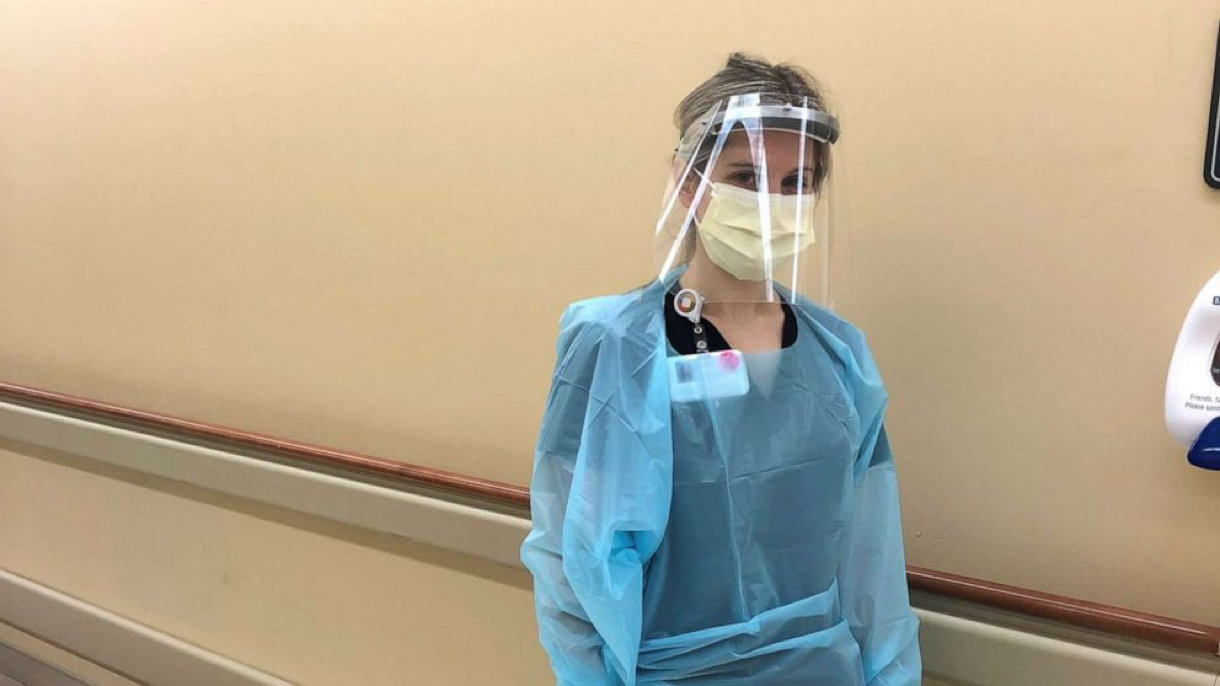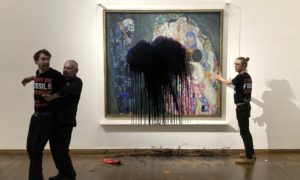Lizzy Pesch, an occupational therapist, has been treating patients with COVID-19 for the past nine months, working long hours and dealing with the unpredictable and devastating toll of the disease.
“When you work at a hospital, you like to see patients get better and go home or go onto the next line of care,” said Pesch, 32, a therapist at Barnes-Jewish St. Peters Hospital in St. Peters, Missouri. “With COVID, just the sheer number of people that we have seen become more sick or eventually pass, it can be discouraging and upsetting.”
“I don’t think we’re used to it at the volume that we’re seeing,” she said.
Pesch, who contracted COVID-19 in November but recovered with only mild symptoms, was working in the intensive care unit just before Thanksgiving when she saw a scene play out between a critically ill COVID-positive patient and a fellow nurse that signified to her the sacrifices of the pandemic.
“Before I even had a chance to remove my gown and face shield and everything, I saw a family member sitting outside in an adjacent room, looking in the room at their family member who was dying of COVID,” Pesch said. “The family member couldn’t be in the room and the nurse was taking care of the patient.”
“Just seeing this nurse touch the patient when the family wasn’t allowed to, it just struck a chord with me,” she said. “It really hit me hard.”
MORE: Nurses, doctors use social media to plead for public to take COVID-19 seriously as cases surge
Pesch said she paused in the moment with an extra appreciation for her fellow health care workers, and a sadness for the families and loved ones suffering through the pandemic.
When she returned to the nurses’ station, Pesch grabbed a Post-it note and wrote down the first two lines of what would become a poem describing the difficulties of the pandemic: “Can’t hold your hand through doors of glass. Watch nurses touch you as you pass.”
“In the ICU, the rooms are divided with glass doors, and that inspired the first line of the poem,” said Pesch. “To be able to see your loved one and not be able to touch them in their final moments, I can’t imagine how painful that has to be.”
Pesch went home after her shift and at 5 a.m., woke up inspired to write the rest of the poem.
“Watching you suffer is destroying my heart,” she wrote, in part. “We healthcare workers are falling apart.”
“You’re someone’s Grandma, You’re someone’s son, and people’s lives are coming undone,” Pesch wrote. “Your body is hurting, and my heart it aches, as I see the fear that’s across your face.”
**MORE: People are ‘adopting’ health care workers on the front lines of the coronavirus pandemic**
A few weeks later, Pesch shared her poem in a Facebook group for health care workers created by a local nurse. She said she was immediately inundated with messages of thanks.
“A lot of times we see what we see and it is traumatic and it is hard to process,” said Pesch. “A lot of people said, ‘You were able to put what I feel and what I see into words.'”
“It’s a wide range of emotions that got summed up into the poem,” she said.
Here is Pesch’s poem in full:
Can’t hold your hand through doors of glass,
Watch nurses touch you as you pass.
It’s not just night shift that’s up at night,
As we all worry that things aren’t right.
Your lungs are on fire, struggling for air,
Because someone without a mask just didn’t care.
Watching you suffer is destroying my heart,
We healthcare workers are falling apart.
When I get dressed for work, it’s not just a job,
When I lose another patient, it’s in my car that I sob.
You see I am human, I bleed just like you,
And with each death that I witness, a part of me dies too.
You’re someone’s Grandma, You’re someone’s son,
And people’s lives are coming undone.
Your body is hurting, and my heart it aches,
As I see the fear that’s across your face.
I know when I touch you, I touch you with gloves,
But underneath there are hands touching with love.
You probably think you’re fighting alone,
But at the end of each shift I’m taking you home.




